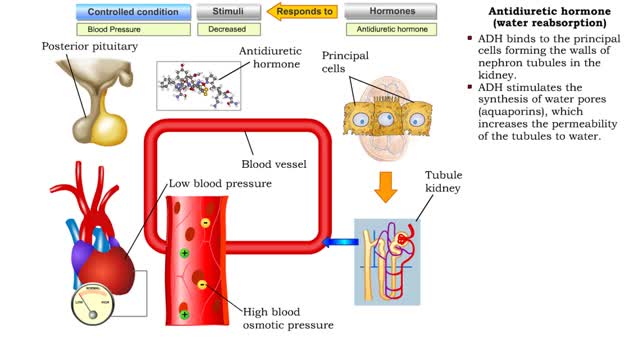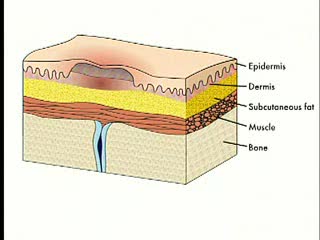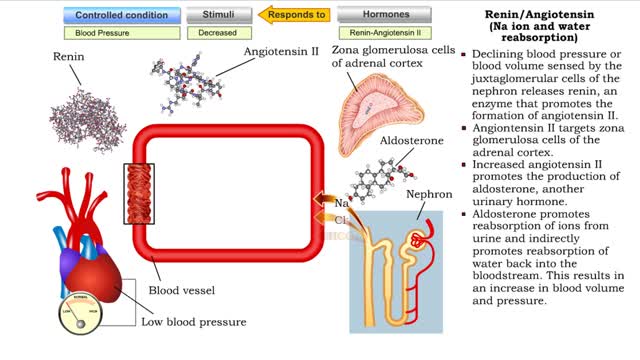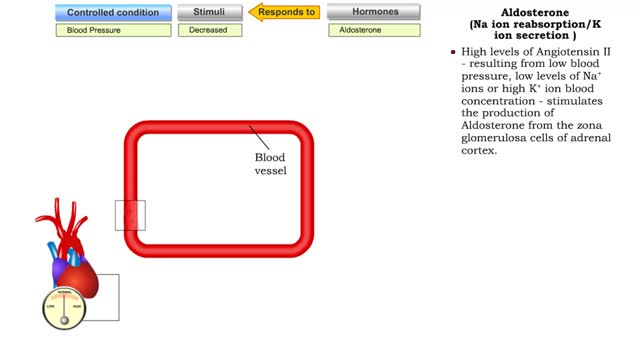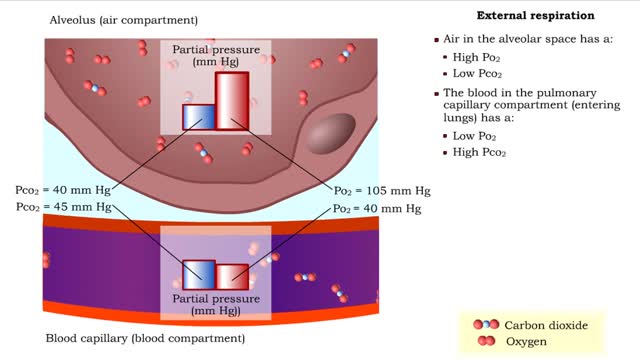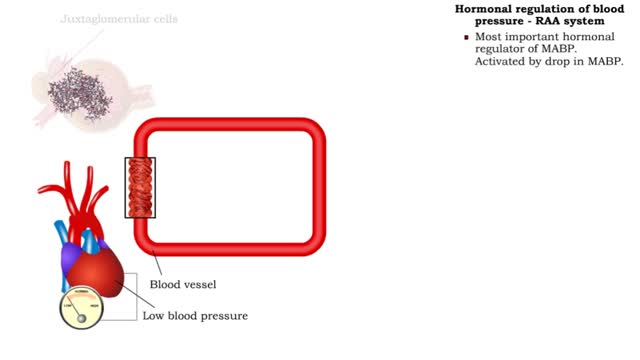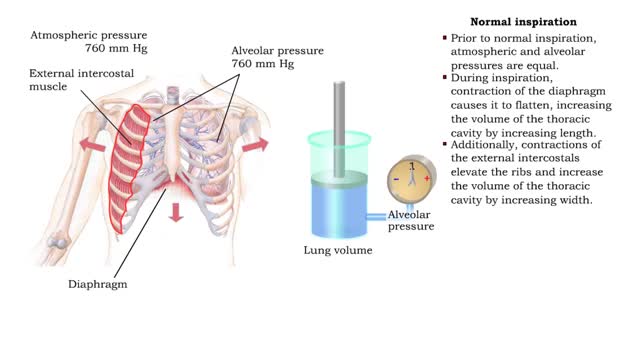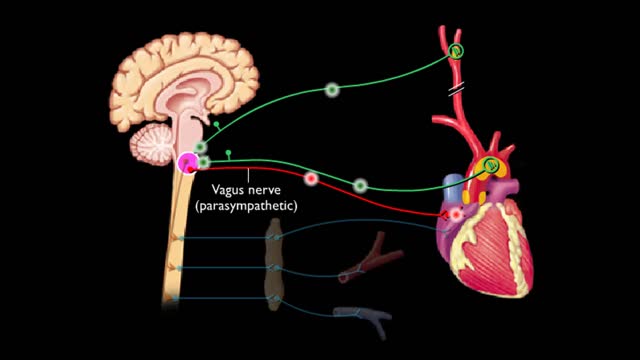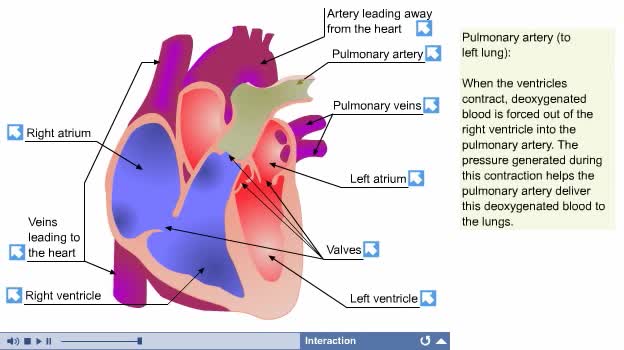Search Results
Results for: 'Hydrostatic blood pressure'
Antidiuretic hormone (vasoconstriction, water reabsorption & sweat inhibition)
By: HWC, Views: 11528
• Dehydration, blood loss, and low amounts of water in the blood can cause blood volume and pressure to decrease. • Neurosecretoxy cells in the posterior pituitary release antidiuretic hormone(ADH). • ADH binds to smooth muscle cells in blood vessel walls, stimulating them to vasoconstr...
By: Administrator, Views: 14880
Pressure ulcers, also known as bedsores, decubiti, decubitous ulcers, pressure injuries, and pressure sores, are localized damage to the skin and/or underlying tissue that usually occur over a bony prominence as a result of usually long-term pressure, or pressure in combination with shear or fric...
Renin/Angiotensin (water gain from urine & Na ion and water reabsorption)
By: HWC, Views: 11691
• Sensing declining blood pressure or blood volume, juxtaglomerular cells of the nephron release renin, an enzyme that promotes the formation of angiotensin II. • Angiotensin II targets smooth muscle cells in blood vessels that provide blood to the nephron. • Angiotensin II causes thes...
Atrial natriuretic peptide (vasodilation) & Aldosterone
By: HWC, Views: 11461
• Certain situations will cause the body's stress level to rise. • increased blood pressure will stretch the atria of the heart, stimulating the secretion of atria natriuretic peptide (MP). • ANP causes muscle cells in blood vessels to relax. • Blood pressure is lowered as a result ...
Gas exchange - partial pressure, locations, external and internal respiration
By: HWC, Views: 11854
▪ In a mixture, each individual gas exerts a pressure that is proportional to the concentration of that gas within the mixture. • This part of the total pressure is called a "partial pressure". • A gas moves along the part of the pressure gradient determined by its own concentration. ...
Hormonal regulation of blood pressure - RAA system
By: HWC, Views: 12218
■ Long-term regulation of MABP is under hormonal control. • Hormones that affect blood pressure and volume: the renin-angiotensin-aldosterone (RAA) system, antidiuretic hormone (ADM), and atrial natriuretic peptide (ANP). ■ Most important hormonal regulator of MABP. Activated by drop in...
Pressure volume relationships - Normal inspiration and expiration
By: HWC, Views: 11521
• Changing the relative pressure in the compartments can control the direction of airflow between compartments. • In a closed compartment, pressure and volume are inversely related. • Reducing the volume will increase the pressure. • Increasing the volume will decrease the pressure. ...
By: HWC, Views: 10986
Baroreceptors located In the carotid sinus and the arch of the aorta respond to increases in blood pressure. Increased blood pressure stretches the carotid arteries and aorta causing the baroreceptors to increase their basal rate of action potential generation. Action potentials are conduct...
By: Administrator, Views: 14818
Circulation of blood through the chambers of the heart Septum divides heart into the right and left heart. Each side contains an upper and lower chamber: Atria, or upper chambers, receive blood. Ventricles, or lower chambers, pump blood. Valves control intake and outflow of blood in chamber...
Advertisement



